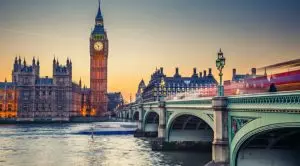 At the beginning of the year, a British media hub highlighted that “the mountain of debt” has constantly been growing for some families in the UK.
At the beginning of the year, a British media hub highlighted that “the mountain of debt” has constantly been growing for some families in the UK.
According to data provided by PwC accountants firm, the overall amount of unsecured debt in the country had increased to £400 billion, or over £16,000 per household. Analysts also say that the prices of essential goods, along with rising borrowing rates, must be considered an element in a deteriorating trend that has seen more than two million British residents use no less than three days’ worth of “emergency food” at local food banks over the past year. Furthermore, many of these people will be permanently employed.
Mark Serwotka, the general secretary of the PCS union, said to the BBC that, currently, about 40,000 people who are employed in the UK’s public sector are using food banks.
As Dominic Lawson wrote for The Daily Mail, as suggested by the figures for unsecured debts, the unstable conditions and rising living costs have forced many public sector workers to use nationwide food banks even if their salaries exceeded the national average. The surge in living expenses has been obviously higher than people could have expected, leaving no other choice for such individuals. Mr Lawson has also shared some concern that the increased use of food banks in the UK, associated with genuine financial difficulties, was linked to both poverty and problem gambling issues.
Liberalisation of the UK Gambling Industry Mostly Affected the Poorest People and Communities
 In Mr Lawson’s opinion, the 2005 decision of the Blair/Brown Administration to expand the British gambling industry has helped the sector turn into “a social disaster in the making” that has particularly affected the poorest members of society.
In Mr Lawson’s opinion, the 2005 decision of the Blair/Brown Administration to expand the British gambling industry has helped the sector turn into “a social disaster in the making” that has particularly affected the poorest members of society.
More than a decade and a half later, the House of Lords published a report called “Gambling Harm – Time For Action”, addressing the impact that the liberalisation of the local gambling market had on individuals, families, and society as a whole. The report in question found that one-third of a million Brits were suffering from gambling disorders. Apart from that, the report revealed that each problem gambler hurts six other people as a result of their disorder through crime, loss of employment, family break-ups, loss of homes, and, sadly, loss of life.
Dominic Lawson paid a tribute to a local organisation – Gambling With Lives – that has been working to raise public awareness of problem gambling and gambling-related harm. The charity that has been found by the parents of a young man, who committed suicide as a result of gambling addiction, has called for the UK Government to suspend gambling advertising. It has also urged the authorities to harden their stance on gambling so that further restrictions are implemented on the sector.
According to the popular British journalist, one of the major problems with gambling addiction is that problem gamblers could hardly be persuaded that they need to put an end to their compulsive habits. And constant gambling advertising, along with special offers and promotions used by gambling companies to attract more customers makes things even harder.
Online Gambling Market Continues to Rise among Further Restrictions on the Retail Gambling Sector
 Mr Lawson cited a 2021 report issued by the Standard Life Foundation which revealed that the number of betting shops is more than 10 times higher in the most deprived areas in the UK than in the most affluent parts of the country. This basically means that the poorest members of society were being targeted more by gambling operators.
Mr Lawson cited a 2021 report issued by the Standard Life Foundation which revealed that the number of betting shops is more than 10 times higher in the most deprived areas in the UK than in the most affluent parts of the country. This basically means that the poorest members of society were being targeted more by gambling operators.
With the effective restrictions that the UK Government imposed on so-called fixed-odds betting terminals (FOBTs) a few years ago, companies have been trying to enhance their presence online, with online gambling participation rates rising several times during the Covid-19 lockdowns. For the time being, however, the Government has not imposed stake limits on online gambling operations.
In June 2022, the National Centre for Social Research revealed that customer losses across all types of gambling services offered over the Internet were concentrated in the most deprived areas of the country.
Apart from that, the scale of these losses has been extremely large. In four of the past five years, more than £14 billion were lost by local gamblers across all verticals. Dominic Lawson cited some figures provided by H2 Gambling Capital, a leading industry analyst, according to which the size of the regulated online gambling market in the UK had reached £10.34 billion, which makes it the largest one on a global scale.
- Author


